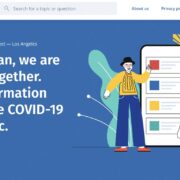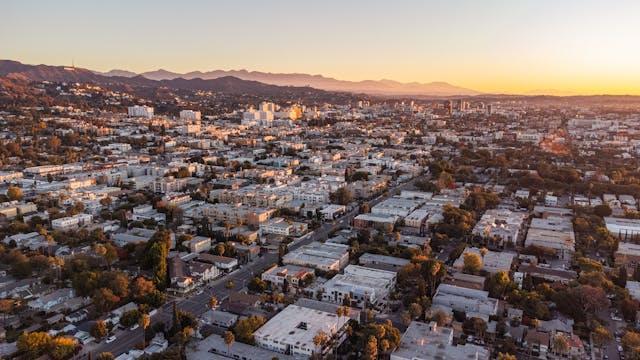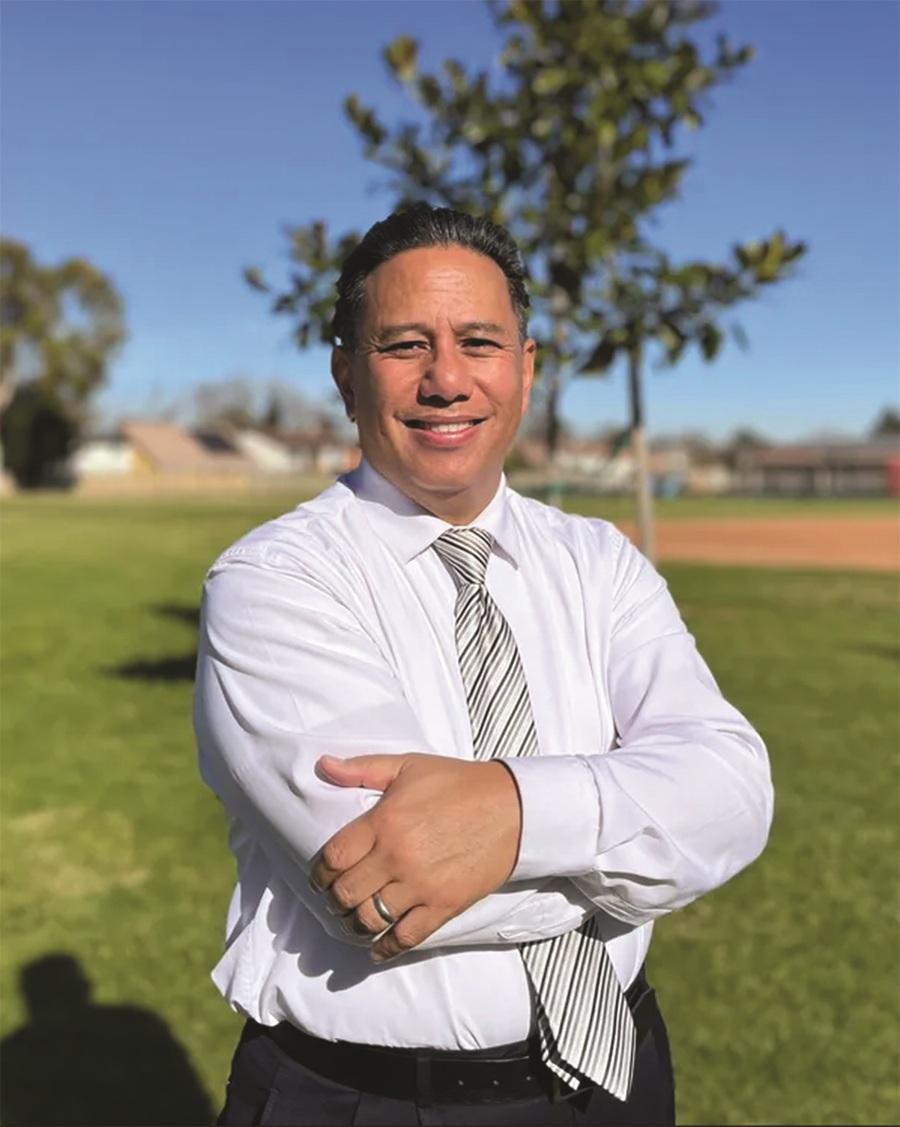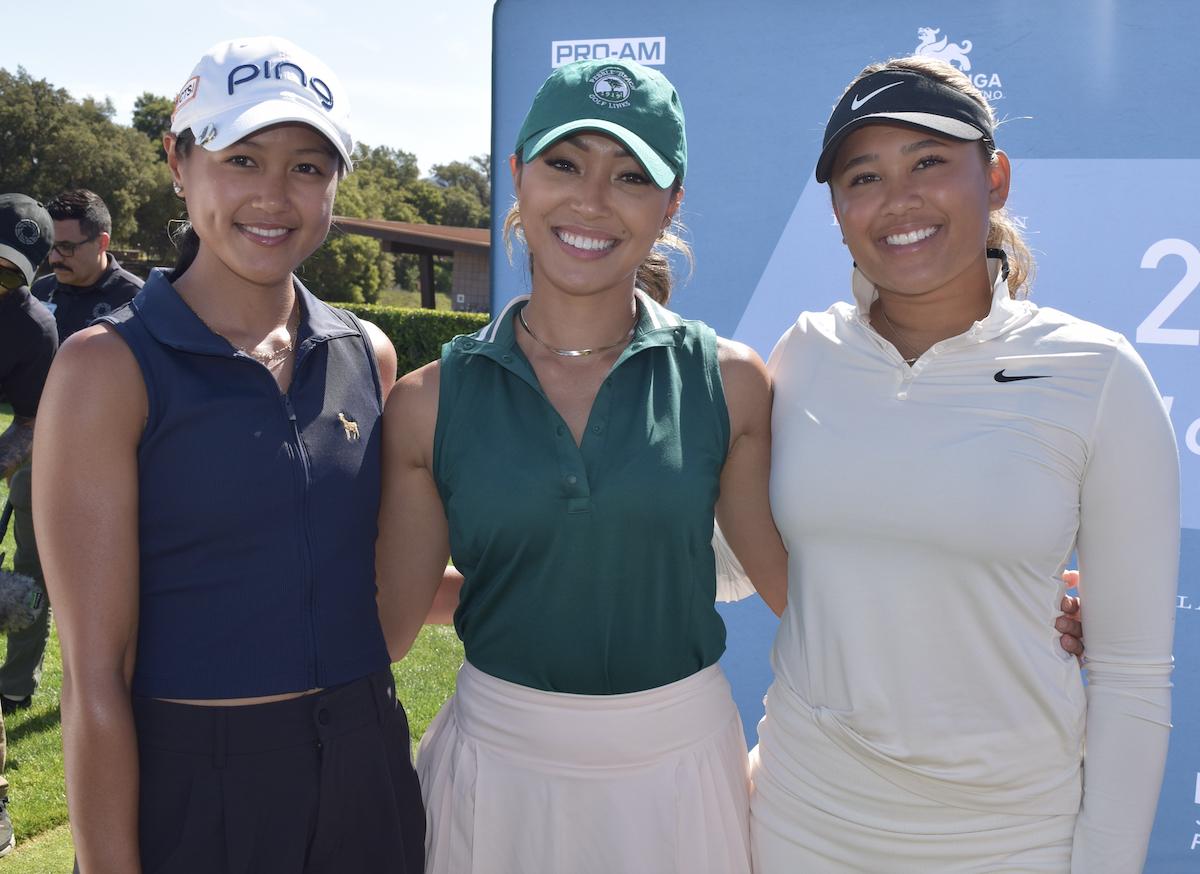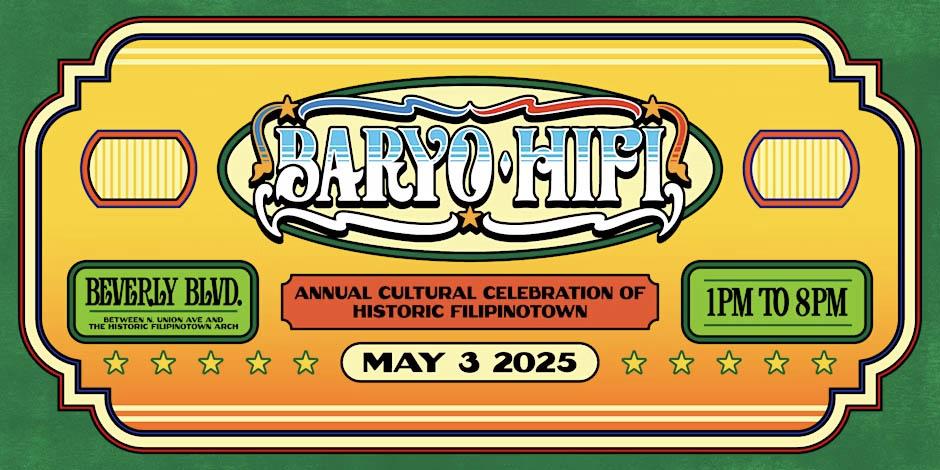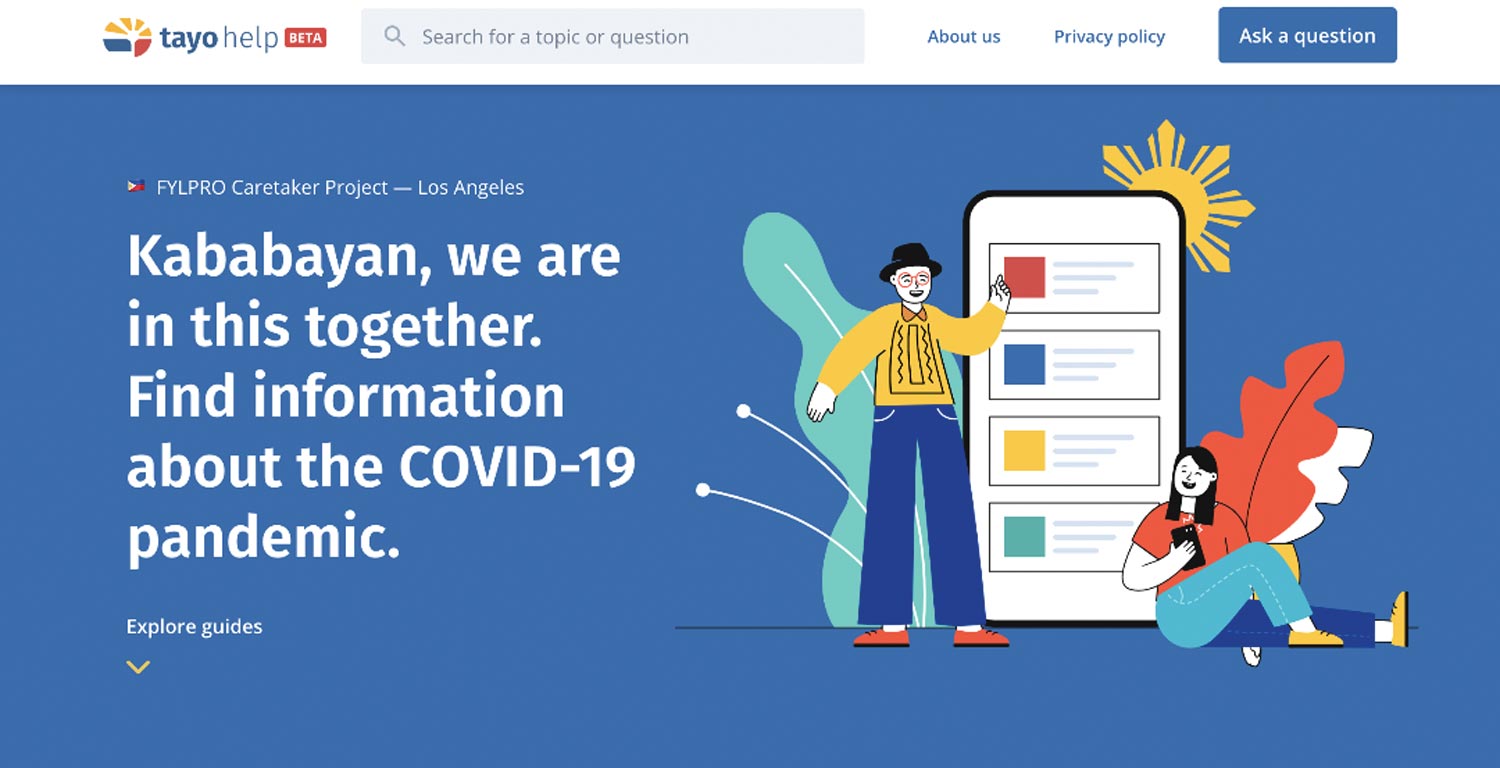
GOING nine months into the pandemic, a virtual help desk is connecting the Filipino American community in Los Angeles County with culturally relevant and in-language information and services.
The “Tayo” help desk — launched under the Filipino Young Leaders Program (FYLPRO)’s Caretaker Project — seeks to address the gaps in how health departments and other institutions are reaching communities of color, like the Fil-Am population, which is among the groups disproportionately affected by COVID-19.
It received a $25,000 Booz Allen Foundation Innovation grant that allows for the pilot to start in LA County, where some 600,000 Fil-Ams call home, according to the last U.S. Census. The plan is to scale the project for other cities and share lessons with other marginalized communities.
“There are other help guides but they’re very general. There isn’t anything there for us as Filipino Americans. As the name says, tayo, because it’s powered by us for us,” said Leezel Tanglao, the chairperson of the FYLPRO COVID-19 task force, which spearheaded the project.
Tanglao and several program alumni came together in the spring after noticing the misinformation on social media shared within the community, such as myths and home remedies for the coronavirus, that could potentially put certain groups at risk. They also observed some cultural barriers like hiya (shame), which may prevent individuals from seeking help.
Months later, the new website has curated articles based on frequently asked questions with three vulnerable sectors of the community in mind: senior citizens, frontline/essential workers, and unemployed members.
The entries, written and reviewed by an “expert panel” of Fil-Am professionals, cover areas like navigating unemployment claims, assistance for essential workers, seeking mental health treatment, and how to safely vote during the pandemic. They’re available in English, but translations in Tagalog are forthcoming, as are articles about debunking claims and scams.
The resource, however, is not meant to replace more immediate attention, like calling 911 or 211 in LA County, the task force cautions.
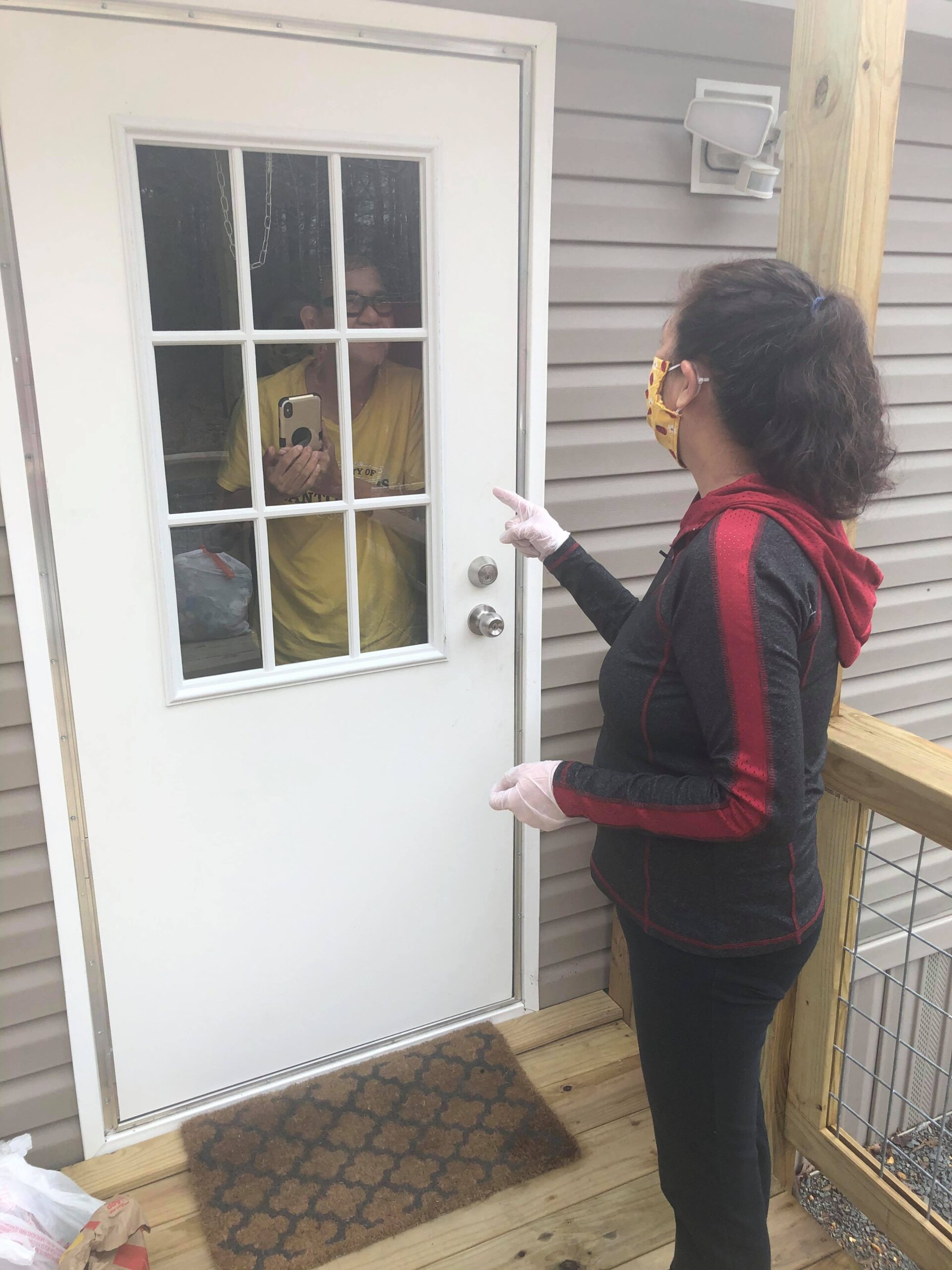
The third aspect of Tayo is to improve the collection of community data because Fil-Ams are still lumped in with other Asian American groups. With more accurate data, the findings can drive how services are allocated to the community. (As of Nov. 3, race and ethnicity data is available for 6,668 LA County’s deaths, showing 14% of them were among Asian residents.)
Individuals are highly connected online more than ever, but the task force is cognizant that not all community members may have steady access to the internet. That’s why partnering with trusted messengers and organizations in the community from hometown associations to church groups is another layer. The project has also directed in-person outreach, such as delivering care packages and meals to community members in need.
“Tayo is under the bigger umbrella of the Caretaker Project. It goes back to the question: If we’re so busy taking care of everyone else, who’s taking care of us?” Tanglao said.


